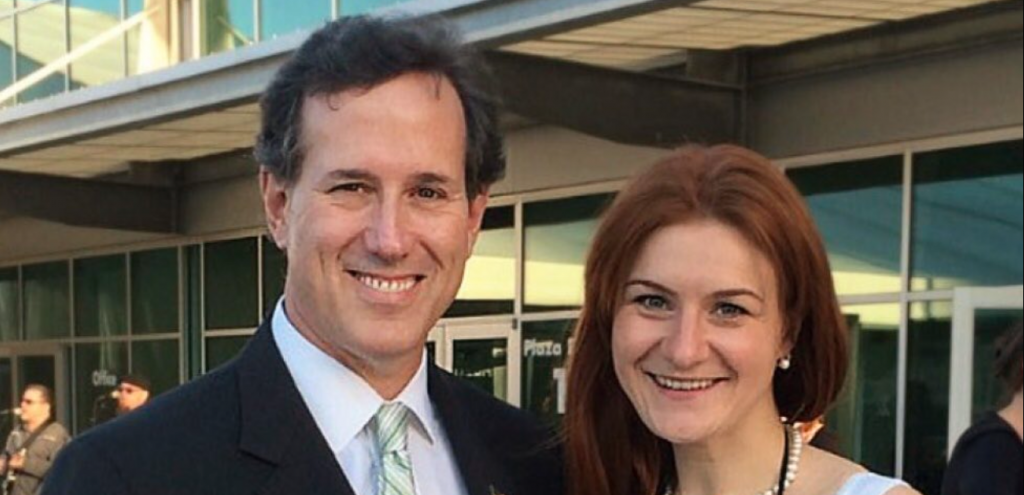The NRA, The GOP, and a Russian Spy: A Story of Espionage

Quick Summary
- Russian national Maria Butina infiltrated the National Rifle Association (NRA) and the Republican Party (GOP) to advance Russian interests.
- The NRA was labeled a ‘foreign asset’ in light of revelations about Butina’s activities.
- Then-presidential candidate Donald Trump interacted with Butina and later pardoned Butina’s associate, sparking intrigue and controversy.
From Russia with Ambition
In 2016, Maria Butina, a Russian national, arrived in the United States armed with a covert and complex agenda. Her mission was to infiltrate the very foundations of American politics, pushing Russia’s interests, and creating a channel between Moscow and Washington. Her key target was the National Rifle Association (NRA), a potent and influential organization deeply rooted within the conservative politics of the United States.
Butina was not a newcomer to the world of politics or lobbying. As the founder of the Russian gun rights group “The Right to Bear Arms,” she had developed connections with influential figures in the American gun rights community. Her Russian group had also hosted high-profile NRA executives in Moscow, establishing a bridge between the two organizations. This deep-seated relationship with the NRA was a critical element in Butina’s strategy as she embarked on her journey in the US.
Butina’s infiltration of the NRA didn’t happen overnight. She dedicated time and effort to establish connections and cultivate relationships with key individuals within the NRA. Her background in gun rights activism, coupled with her apparent passion for the subject, helped her gain the trust of the NRA’s influential figures. “She seemed like such a passionate Second Amendment supporter,” said one NRA member who had interacted with Butina, “I had no reason to suspect she had ulterior motives.”
NRA – A Foreign Asset
The National Rifle Association (NRA), a bastion of American conservatism and a force to be reckoned with in American policy-making, found itself tarnished by its association with Butina. Investigations into Butina’s activities revealed her role as a foreign agent working to advance Russian interests, transforming the NRA, in the eyes of many, into a ‘foreign asset’.
The realization that the NRA had been used as a platform to influence American politics for the benefit of another nation caused a national outcry. As Senator Ron Wyden remarked, “The totality of evidence uncovered paints a picture of a broad, deliberate, and ongoing effort to infiltrate and manipulate an organization at the very heart of American democracy.”
Butina’s actions unveiled an uncomfortable truth about the susceptibility of even the most influential organizations to foreign interference. This forced the American public and lawmakers to reassess their perception of the NRA. “This isn’t just about campaign finance rules,” noted one commentator, “It’s about the integrity and security of our political system.”
Infiltrating the GOP
Butina’s ambitions didn’t stop at the NRA. She set her sights on infiltrating the GOP, a party inextricably linked with the NRA. At a 2015 town hall event, she directly questioned then-presidential candidate Donald Trump about his position on Russian sanctions, indicating her deep reach within the GOP circles.
Responding to her question, Trump stated, “I know Putin, and I’ll tell you what, we get along with Putin… I believe I would get along very nicely with Putin… I don’t think you’d need the sanctions.”
The nature of Butina’s query further highlighted her strategy and audacity. She asked Trump, “If you would be elected as the president, what will be your foreign politics, especially in the relationships with my country? Do you want to continue the politics of sanctions that damage both economies, or you have any other ideas?” This public interaction with Trump not only thrust Butina into the limelight but also raised questions about the extent of her reach within the GOP.
The Pardon Puzzle – Paul Erickson
Paul Erickson, an American conservative political activist and Butina’s associate, played a crucial role in her story. Erickson was instrumental in facilitating Butina’s entry into the GOP and NRA through his deep connections. His role came under intense scrutiny when President Trump issued a pardon for him under unusual circumstances, igniting a blaze of controversy.
Erickson himself was a fervent advocate for better Russian-American relations. In a 2016 email to the Trump campaign, he wrote: “Putin is deadly serious about building a good relationship with Mr. Trump. He wants to extend an invitation to Mr. Trump to visit him in the Kremlin before the election.” This pardon, viewed in conjunction with Erickson’s advocacy and Butina’s activities, inevitably raised eyebrows and invited further investigation.
The Aftermath
Maria Butina’s saga laid bare the vulnerability of political institutions to foreign influence. Her story underscored the need for greater vigilance and reinforced security measures to guard against such incursions in the future. As one commentator put it, “The Butina case is a stark reminder that our political systems are not impervious to foreign influence. It’s a wake-up call for us all.”
Sources:
- AP News: Read more here
- CNN: Read more here
- CNN: Read more here
- Mother Jones: Read more here

